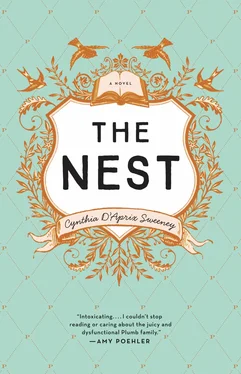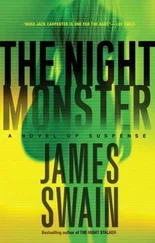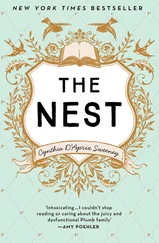“Excellent.” She smiled at him and then looked down at the dog. “C’mon, Rupert,” she said. “Let’s show our friend where you live.” As they turned to leave, she stopped and pointed to Bea’s leather satchel sitting on the bench. “Is that yours?” she asked.
Leo looked at the brown leather case. He remembered buying it, how proud he’d been when he bargained the seller in London down to less than half the listed price. When he got the thing home, he decided it was a little on the twee side, a little too uptown, so he’d given it to Bea. “That is definitely not mine,” he said, relieved to note his ebbing anxiety, his elevated mood. He probably shouldn’t leave the case sitting there. But then he saw Paul Underwood approaching from less than a block away, right on schedule, set to arrive at the bench precisely at 8:55 A.M., as he did every weekday. Leo dropped his cigarette and ground it beneath his heel. He was doing everyone a favor by getting out of town, he thought. People abandoned one another constantly without performing the courtesy of actually disappearing. They left but they didn’t, lurking about, a constant reminder of what could or should or might have been. Not him.
“You think it’s okay to just leave it there?” she asked.
Leo looked at the satchel again and then back at Paul, who’d seen him and raised a hand in recognition. “Sure,” Leo said. “If it’s important, whoever left it will come back. Okay, Rupert,” he said to the dog, clapping his hands. “Lead the way.”
Let me do the talking,” Vinnie said, sitting at Matilda’s kitchen table and paging through her contacts, looking for Leo’s name.
“It’ll go straight to voice mail,” she said. “I’m telling you.”
If it was possible, Vinnie was even more pissed to learn that Matilda had called Leo Plumb after the night he’d brought over the mirror, after they’d argued. “I thought about what you said,” she told him. “I decided maybe you were right.” She had dialed Leo’s number a few times, she finally confessed to Vinnie, but it always went straight to voice mail and she didn’t want to leave a message.
“We’ll dial all night if we have to.” He touched the screen and put the phone on speaker and, as Matilda predicted, the computer-generated voice mail came on. Vinnie disconnected and hit redial. This time, after only two rings, someone answered. A woman. Vinnie and Matilda were momentarily stunned.
“Hello,” they both said at once.
“Hello?” the woman said.
Vinnie held a hand up, signaling for Matilda to be quiet. She shook her head and pointed to herself. She could do this. Vinnie nodded at her. Go, he mouthed.
“My name is Matilda Rodriguez.” Silence. She cleared her throat and leaned closer to the phone sitting on the table to make sure her voice could be heard. “And I would like to speak to Leo Plumb.”
“That makes two of us,” Stephanie said.
Melody’s birthday was usually a grim-weather affair occurring when it did, in the waning days of February. New York in February was still weeks away from any sustained sun or morning birdsong or tender plant shoots breaking through the mottled dirt. The holidays and New Year celebrations were already a distant memory, as diminished as the lingering, soot-covered curbside snowpack that would finally melt under a gloomy March rain only to expose neat little piles of desiccated dog shit.
But every so often, like the day of her fortieth birthday, the weather gods would smile upon Melody and lift the hem of the jet stream just far enough north to create a brilliant preview of spring, embryonically warm and inviting. It was the kind of day that can fool the crocuses into blooming too soon and the twentysomething denizens of New York into baring their winter-white legs and walking down the recently salted pavement in arch-destroying flip-flops, dirtying the bottoms of their feet still tender and pink from months of being coddled by socks and boots and sheepskin slippers.
Heading south on the Taconic, a furious Walt was driving exactly four miles above the speed limit; the mood in the car was tense. After Melody’s absurd counteroffer and her subsequent refusal to budge, the two potential buyers for their house became impatient and moved on. When Walter discovered her deception, he was more dumbfounded than enraged. He was about to call Vivienne Rubin to reopen negotiations when the promising e-mail from Leo had arrived. Melody managed to convince him to wait until after her birthday dinner.
Melody knew Walt was also annoyed at how giddy she was being about the birthday celebration. Easy for him to say, he had forty-five years of wonderful birthdays behind him. Easy for him to be all blasé and world-weary, but she was turning forty and this was the first real birthday celebration she’d had, well, pretty much ever.
Melody’s first and last birthday party happened the year she’d turned twelve, a rare capitulation on Francie’s part. Walking home from school that day with her three closest friends, Melody could barely contain her excitement — while repressing the distant drumbeat of concern. She’d asked her mother to buy a variety of foods, to set the table, to organize games. Francie had waved off her instructions, saying “I think I know how to keep people entertained.”
But the only party Melody remembered having taken place at the Plumb house was a birthday party for Francie the previous summer that had become so raucous and gone on so late that the neighbors had complained to the police. The cops, all friends of Leonard and Francie, joined the festivities and sat in the back sipping beer. Melody watched from the upstairs bathroom window as her mother gently bounced on the lap of the policeman who showed up at her school every year to talk to them about stranger danger; he called himself “Officer Friendly.” Officer Friendly’s hands rested easily on either side of Francie’s waist, right above the swell of her hips. “Hands up!” he kept saying and Francie would raise her arms high above her head and laugh as his open palms slid up her torso, stopping when his fingers grazed the underside of her breasts. Melody was certain there hadn’t been any games at that party. Or gift bags. Just a cake and music and lots of cigarettes and cocktails.
Francie greeted Melody and her school friends at the door wearing a silk kimono and holding a martini. Melody’s heart sank. The robe this early in the day was a very bad sign. As was the cocktail.
“Welcome, ladies, welcome.” Francie waved the group through the front door. Melody could see the girls looking around the Plumb house and then eyeing each other, warily but with interest. The Tudor house was stately from the outside, but the inside was worn and neglected, chaotic. The foyer where the girls stood in their winter coats was a muddle of outerwear from all seasons. Coats were piled on a bench, hats and mittens spilled out of baskets on the floor, there were shoes everywhere — broken flip-flops, evening sandals, insulated boots, snowshoes.
“You’re right on time,” Francie said. “I admire punctuality in guests.”
“We came straight from school,” Melody’s friend Kate said. “It’s a quick walk.”
“So you did. So you did,” Francie said, focusing on Kate, looking her over. “Are you the logical one, the A student?”
“Mom,” Melody said. She wanted her mother to stop talking to her friends. She especially wanted to stop this line of inquiry, one of Francie’s favorite gambits, assigning people a descriptor based on her first — often uncanny — impression. Melody wanted Francie to go upstairs and put on a pair of pants and a sweater and pull her hair back with a black velvet headband like Kate’s mother, or to carry cookies and hot cocoa out on a tray like Beth’s mother and ask about their homework, or to burst through the door after a day spent working at an office in the city like Leah’s mother and hustle straight to the kitchen saying, in her thrilling Irish timbre, “Supper soon, loves. You must be starved!”
Читать дальше
Конец ознакомительного отрывка
Купить книгу












